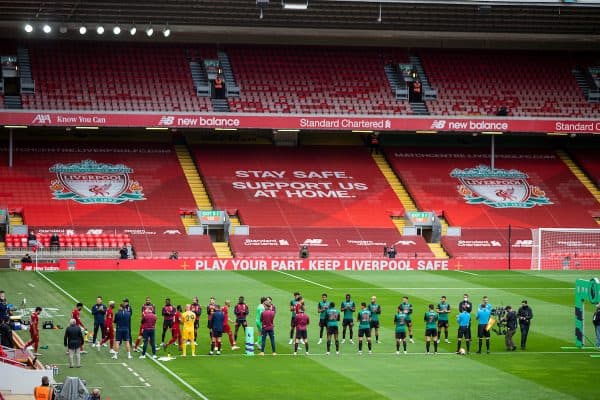A guard of honour is a respected tradition in sport and football, and Liverpool have earned four of them with their Premier League title win – but what are the rules, if any?
The Premier League has been decided on the final day 10 times in its history, making guard of honours a common sight over the years for the champions.
With Liverpool winning the league with four games to spare, they have, therefore, earned the honour of their opponents showing their respect ahead of kickoff.
Arne Slot‘s men will face Chelsea (A), Arsenal, Brighton (A) and Crystal Palace before the season is over, with each expected to applaud the Premier League‘s new champions.
It is not compulsory, however.
What is a guard of honour?

It is a mark of respect which is used across society, and in football, it is typically used to celebrate or bid farewell to an individual or team.
When it comes to the title winners, the opposition team will line up in parallel lines on the pitch, applauding as the champions walk through the middle and take their acclaim before the match.
In the English game, the practice dates back to 1955, when Man United provided one for Chelsea after they won the league with a game to spare.
Is it compulsory?
A team is not forced to offer a guard of honour when they face off against the champions, but it speaks volumes of the club and the team if they refuse to do so.
There is no mention in the Premier League‘s regulations, but it is an accepted practice when a team wins the league with games to spare.
It is agreed before a match if the gesture is to be organised as it will dictate how the two teams walk out of the tunnel.
Liverpool’s most recent guard of honours


Liverpool had a record seven guard of honours after they won the title in 2019/20, with Man City, Aston Villa, Brighton, Burnley, Arsenal, Chelsea and Newcastle all respectfully welcoming the champions.
Due to COVID, players were under strict instruction not to shake hands or high-five, even if they were to come in direct contact during the game only moments later.
That rule will, of course, not be in effect this time around.
As for other instances, Leeds previously gave the Reds a guard of honour in 1979 after their third title in four years, while Liverpool gave one to Chelsea in 2015.



















